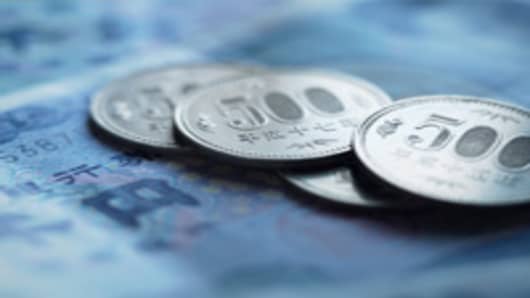Japanese companies should take greater advantage of the strong yen to increase overseas investments and buy natural resources, according to the country’s economy minister.
While Japanese exporters have been complaining about the yen’s rise, which hit record highs on a nominal basis against the dollar late last year, Yukio Edano said companies should not ignore the upside of a strong currency.
“We should use the strong yen assertively to invest and buy things, to be as proactive as possible,” said Mr Edano, whose brief also includes trade and industry. “Japan is short on resources, so we need to use this opportunity to firmly secure rights to energy and commodities.”
His call echoes the country’s buying spree in the 1980s, when Japanese companies snapped up US real estate and overseas competitors. A revival of that strategy, but with a focus on natural resources, is pitting Japanese firms against a new generation of Chinese rivals.
According to Mergermarket, Japanese companies spent $69.5 billon on overseas assets in 2011, more than double their 2010 total but less than the record $74.2 billon of deals completed in 2008.
Mr Edano urged companies to become even bolder: “It’s not something just for the bureaucracy: it’s something I encourage the private sector to push ahead with vigorously ... We have to go on the offensive.”
Japan’s trading houses, which make the bulk of their profits from commodities, have embarked on a buying spree that has surprised Western mining and oil executives. The top five houses — Mitsubishi, Mitsui, Sumitomo, Itochu and Marubeni — are significant producers and traders of commodities including copper, iron ore, crude oil, coal, aluminium, soyabeans and liquefied natural gas.
Mitsubishi, the largest such group, took a 5 percent stake in Royal Dutch Shell’s $17 billon natural gas project in Iraq. Mitsubishi and Mitsui, its main rival, are also on opposite sides of a $6 billon battle for control of one of Chile’s most prized copper mines, which is owned by London-listed Anglo American.
“The trading houses have been re-energised by the [Japanese] government,” said the chief executive of a London-based mining company.
Mr Edano’s ministry also intends to increase funding for state-backed investment groups, such as the Japan Oil, Gas and Metals National Corporation, and wants to enact legal changes allowing them to buy into wider variety of assets. Jogmec will have Y92.7 billon ($1.2 billon) next year to invest in resource exploration and extraction projects, almost all of them overseas, compared with Y12.1 billon last year.
Addressing concerns about job losses in Japan as businesses move their focus abroad, Mr Edano said government surveys of small and medium-sized enterprises suggested that competitiveness gains from foreign expansion eventually strengthen companies’ domestic operations.
“At first, of course, there is a loss of jobs at home. But after about five years they expand [domestic] hiring and end up employing more people than companies that don’t expand beyond Japan,” he said.
The economy minister also called for greater competition in Japan’s electricity market after the nuclear crisis at the Fukushima Daiichi nuclear plant.
Mr Edano said he hoped for an early launch of full negotiations on a long-awaited trade agreement with the European Union.


